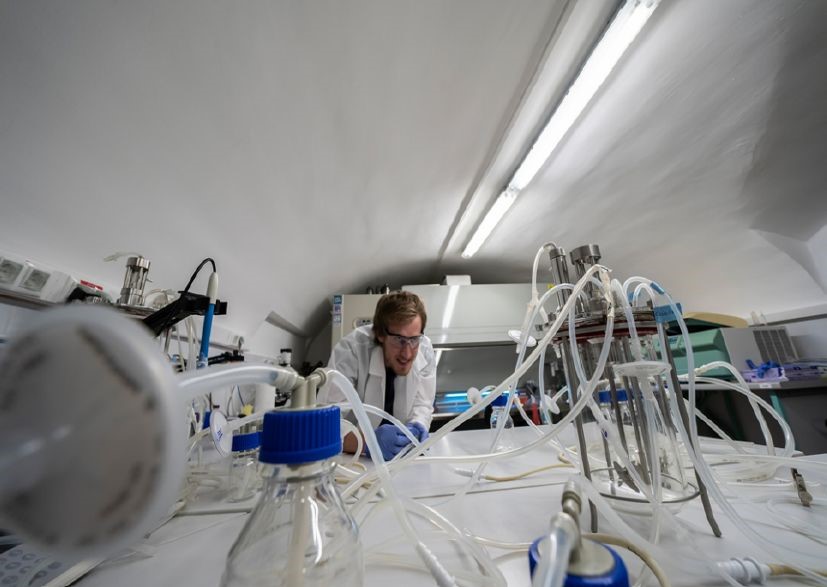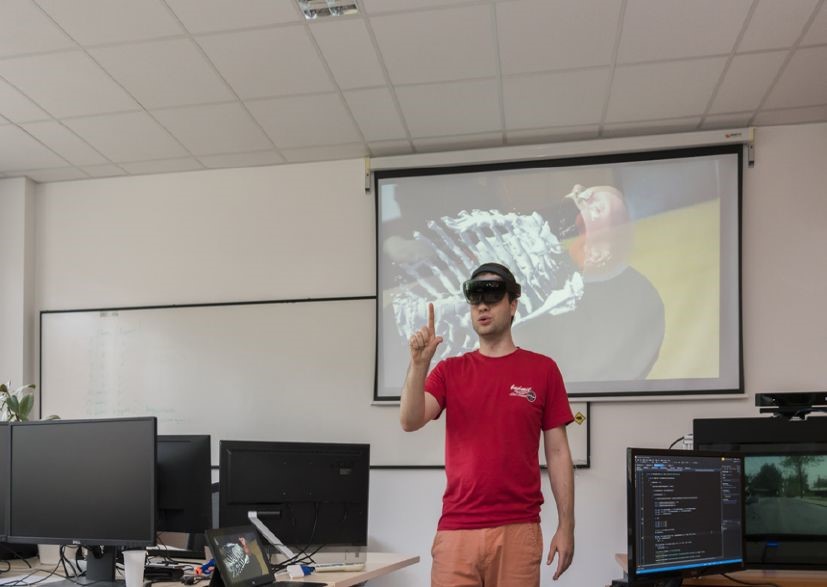BME FIEK – BME Centre for University-Industry Cooperation
BME FIEK, a new R&D&I service centre was established in 2017 as the joint project of several large corporations and the Budapest University of Technology and Economics. The aim of the organisation is to coordinate the professional competences of the university and find solutions to complex industrial problems. The cooperation between the university, Siemens, Richter Gedeon, Nokia Solutions and Networks, and MVM Hungarian Electricity Company did not start at this point of time, they have been partners for decades. “We have implemented several successful research and development projects. Companies contact us raising questions they cannot respond to due to the lack of the necessary experiments they would need to do in addition to their daily tasks, and we together with the colleagues and students work in projects to find the right solution” – explained László Lengyel, director of BME FIEK. The cooperation aims to elaborate new procedures and solutions and it also provides practical training to students, who get to know their future working environment.
The NRDI (National Research Development and Innovation) Office decided to grant support to the project in 2016. This governmental Office provided funding of HUF 3.96 billion and the participating companies together provided a further HUF 2 billion as their own contribution. Although FIEK is a project supported by the government, it is an independent central organisational unit within the university, which serves the faculties like other central organisations in the university. Businesses have an opportunity to articulate their research, development and training needs for higher education, whereas the university in addition to its scientific activities may produce results that can be effectively utilised in practice, thereby they inspire the translation of theoretical knowledge into promoting industrial solutions to everyday issues.
In FIEK five R&D laboratories have been established. The first is the PharmaTech pharmaceutical technology laboratory supported by Richter Gedeon. The general objective is to elaborate the complex and continuous pharma-technology concept, which is expected to bring about a safer and more competitive pharmaceutical process as a result. To this end, in the laboratory researchers apply real time sensing, data processing, immediate control in parallel with manufacturing based on computer models, analytical tools and artificial intelligence.
The Smart Power simulation laboratory established jointly with Hungarian Electricity Company, where increasing the security of supply, sustainable energy supply and energy efficiency are the research topics of decisive importance. The real-time development and testing under laboratory circumstances of the energy management of the electric energy system largely based on renewable energy resources takes place here.
In the Mikro-CHP (Combined Heat and Power) laboratory they seek to utilize the idea of cogeneration of heat and electricity using natural gas as primary energy source, which could be more effective in households and small offices. The fourth laboratory is the Siemens modular, hybrid drives laboratory. In the model plant electric engines with a power of 300 kW performance and 5000 rpm, as well as every element of the drive train - engine, generator, converters, and battery - of electrically propelled vehicles and their combinations can be tested.
The fifth is the ICT (information and communication technologies) laboratory, which by connecting the first four into a network, provides a unified information platform for research and development activities. In the project digitalisation is not handled as a separate area, but as a horizontal support surface, which collects data, analyses data and then intervenes. The task of information technology is to make the work of laboratories and specific areas more efficient and more competitive.
The current project is running with the participation of the university and the four large businesses mentioned above, however, at the same time FIEK – as a knowledge base – provides service for the industry as a whole, would like to attract market players and we wish to establish the link between industry and university in a more organised, more professional form. FIEK started to work on a model, which is sustainable and gives a multi-disciplinary response through the cooperation of different university faculties, researchers and students to complex challenges that facing the industry. The key to the future is such cooperation between industry and universities: it is in the area of research and development where education and the market can complement each other in the most efficient way.
It is a strong belief that this model will optimise the links between university and industrial R&D within a new institutional approach, and speed up the transfer of scientific results into practice. This enables education to get closer to industrial needs and also contribute to the vocational training of industrial staff.
|



